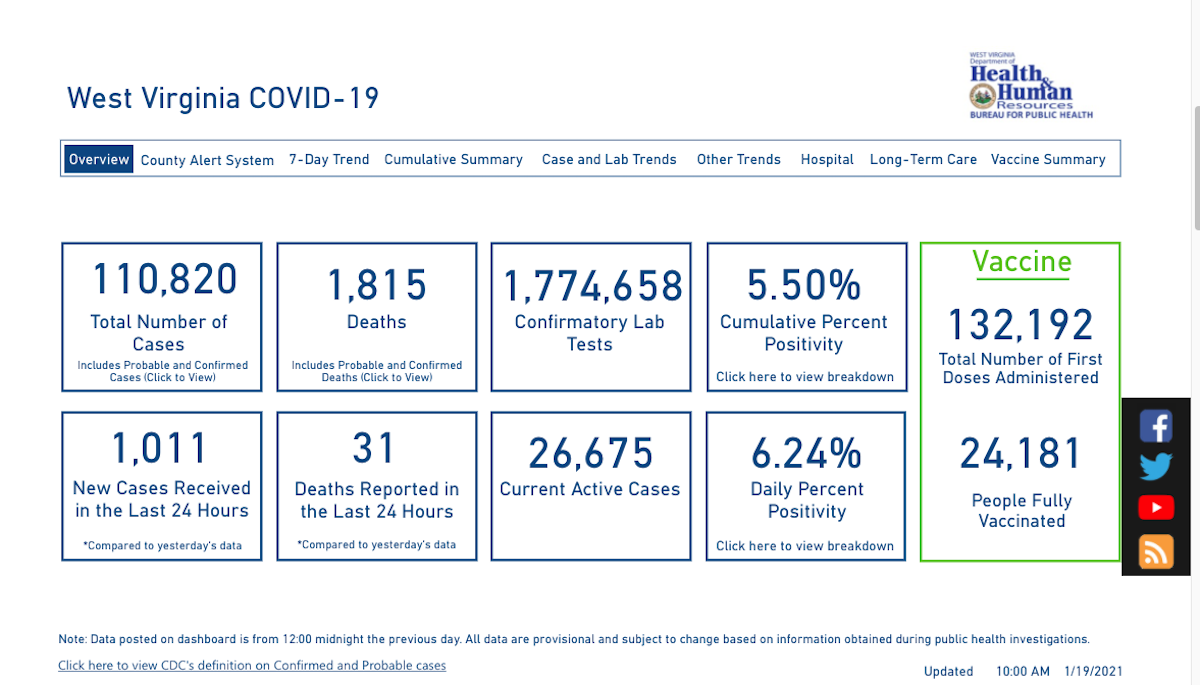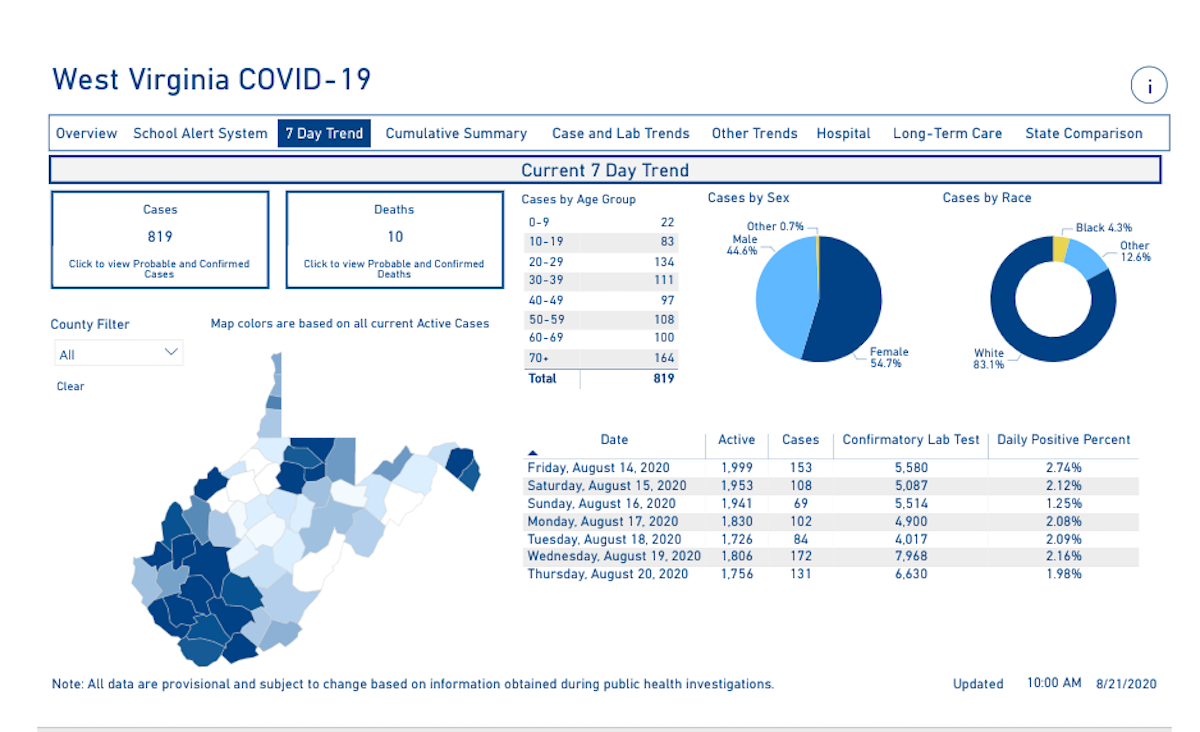Release from WVU Today:
MORGANTOWN, W.Va. — West Virginia University has launched a website dedicated to information about the COVID-19 coronavirus and the University’s response and plans should the disease begin to affect the institution and community.
The website is located at http://coronavirus.wvu.edu and includes general information as well as links to more detailed information for specific audiences such as students, faculty, staff and the general community.
WVU Medicine has also established a telephone number for individuals if they have respiratory or flu-like illness and symptoms: 304-598-6000 (Option 4). Individuals are encouraged to call this number before coming to the hospital, clinic or emergency department. If you are unsure whether or not you should be seen, call your local health department for guidance.
In addition, the University released a video today (March 5) with information and advice from Dr. Kathryn Moffett, an infectious diseases expert at WVU. The video, which can be found on the website, provides important information about the virus and tips to help keep students, faculty, staff and surrounding community well. The video is also available on YouTube at this link: https://go.wvu.edu/coronavirusmoffett.
The University continues to closely monitor the disease’s spread. No case has been confirmed in West Virginia, although the University is actively preparing plans should that change.
Health officials note that most West Virginians are unlikely to be exposed to COVID-19 at this time, and the immediate health risk is low. However, according to CDC, due to the rapidly changing nature of the spread of COVID-19 around the world, it is important to prepare for potential community spread.
Meanwhile, health officials say the best steps to avoid contracting COVID-19 are:
- Washing your hands often with soap and water or alcohol-based hand rub.
- Avoiding touching your eyes, nose or mouth. Germs are often spread when a person touches something that is contaminated with germs and then touches his or her eyes, nose or mouth.
- Covering coughs and sneezes with a tissue, or the bend of your elbow, not your hands.
- Using the nearest waste receptacle to dispose of the tissue after use.
- Avoiding contact with sick or affected individuals.
Additionally, sick individuals are urged to stay home.
Students with health questions or concerns should contact WVU Medicine Student Health at 304-285-7200. WVU faculty and staff should reach out to their primary health provider. Additional information can be found on the West Virginia Department of Health and Human Resources’ website.
University employees and students should continue to monitor their email inboxes, as well as the website, for updates.





